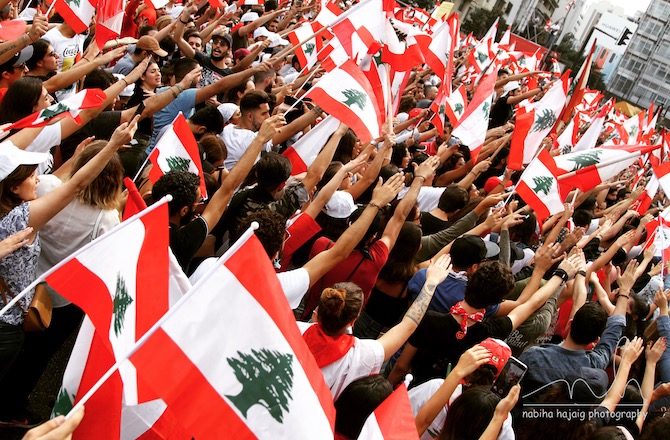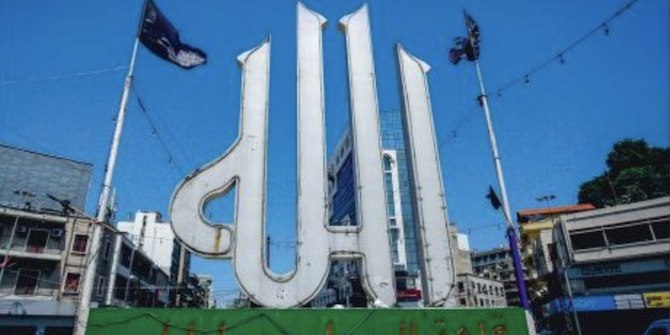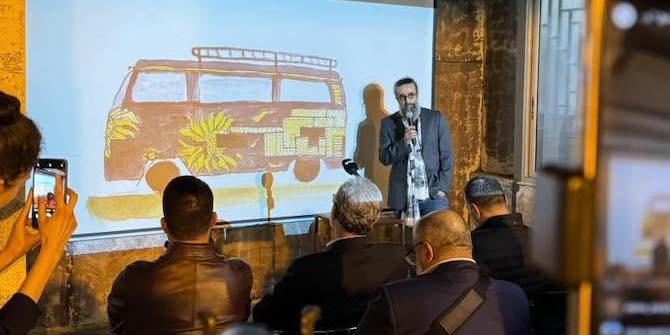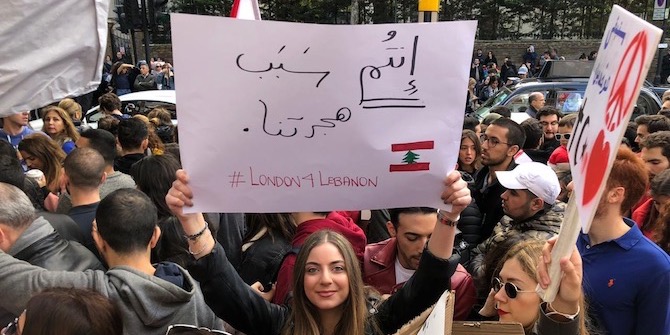by Deen Sharp & May Farhat

In October 2019, large-scale non-sectarian protests erupted across Lebanon for three months. This revolt had a profound impact on the social and political landscape in the country. Many refer to this moment as a “revolution” (thawra). Since the October 2019 protests, Lebanon has had to contend with COVID-19, one of the most severe economic collapses on record globally, and the consequences of the August 4th Beirut Port explosion, one of the largest non-nuclear explosions to hit a city. Even amongst these polycrises, or because of them, the impact of the 2019 protests continues to resonate within Lebanese society. In the 2022 general elections, the Lebanese electorate elected several candidates to the Lebanese parliament who were not aligned with traditional political parties. Many in the country and in the media referred to these candidates as a representative element of the October Revolution. Despite the different politics between these candidates, many analysts consider them to constitute an (albeit loose) revolutionary bloc within parliament. The meaning and consequences of the 2019 protest movement are still being struggled over and created in Lebanon.
The LSE- Holy Spirit University of Kaslik (USEK) Academic Collaboration, Lebanon Unsettled, understands the 2019 protests as a transformative moment. This nationwide revolt created the possibility of different understandings and solidarities in relation to the country’s history, space, and identity, and in turn, reshaped the perceived possible futures of the nation and political openings. The revolt offered a new generation the opportunity to participate in political life. It created new spaces of hope and imagination.
The Lebanon Unsettled project – led by the co-Principal Investigators, Deen Sharp, a Visiting LSE Fellow in Human Geography at the Department of Geography and Environment, and May Farhat, Associate Professor at the Faculty of Architecture and Design at USEK – aimed to place the 2019 protests in their broader historical and geographical context. The project has two main outputs; first, a student workshop that took place at USEK in July 2022; and second, a website that will feature interviews with the students from the workshop and the performative maps the students produced in it. The website will also showcase social revolt in Lebanon across the long durée and will place an emphasis on the Ammiyyat, a series of protests that occurred in Mount Lebanon in the 1820s and 1840s. The website will be launched with a Middle East Centre Research Report in early 2023 in Lebanon and through a webinar at the LSE.
USEK was selected as a partner university for this collaborative project with LSE for several reasons. First was its geographical location. The vast majority of international collaborations with Lebanese universities are undertaken with universities in Beirut. USEK’s campus is in Kaslik, 20 km north of the capital, and the university serves a student population who mainly come from the coastal urban areas of Jounieh, Jbeil, and Batroun, as well as from the towns and villages of Mount Lebanon. Second, is the university’s unique history. It is the first university to be established by Lebanese nationals, notably the Lebanese Maronite Order of monks. Founded first as a scholasticate in 1938, it became officially a university in 1962. USEK in recent years has made efforts to engage in serious scholarly research and critical inquiry. USEK has expanded, for instance, its Special Collections and Archives which now includes the personal archives of notable Lebanese figures and families, like those of the Sursock family, papers of former Lebanese presidents, as well as an oral history project on the Lebanese civil war. This project is aimed at encouraging and showcasing to the USEK community critical research tools and social theory, what it means to create an archive, and the relationship between knowledge and power.
The Lebanon Unsettled project aims to bring to the fore alternative voices, geographies, and histories of the 2019 protest moment. What marked these protests was their geographical comprehensiveness. This project will make visible some of the spaces and their histories beyond Beirut that have shaped this critical moment in Lebanon’s historical geography.
This blog post introduces the research project ‘Lebanon Unsettled’ conducted in collaboration with the Holy Spirit University of Kaslik (USEK) and part of the LSE Middle East Centre Academic Collaboration with Arab Universities Programme, funded by the Emirates Foundation. Deen Sharp is the principle investigator on this project with May Farhat.






